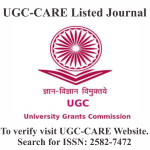UNDERSTANDING THE DYNAMICS OF PERSONAL LAWS: INTERPRETATION BY SECULAR COURTS AND POLITICS OF REFORMS
DOI:
https://doi.org/10.29121/shodhkosh.v5.i6.2024.4478Keywords:
Personal Laws, Rights, Constitution of India, Gender EqualityAbstract [English]
The research paper seeks to address the dynamic complexities of personal laws in India through the historical developments and in contemporary context. History is read not only as a set of events over a time, but also through varied conceptions of ‘law’ as they have evolved during the period. Legal pluralism has been the backbone of India in pre and post British periods that is why enough constitutional debates are found on the questions of continuance and validity of personal laws within the precincts of constitutional provisions. Personal laws being based on religious norms and practices of communities on one hand and our country having adopted secular principles, time and again issues have taken origin with regard to validity and acceptance of personal law practices in consonance with scientific principles of gender equity and egalitarian society. The Constitution of India has itself been a subject of extensive debate regarding personal laws, especially in respect of the scope of Article 13, which deals with laws that are in force but may be inconsistent with or in abrogation of fundamental rights following the adoption of the Constitution in November of 1949. While on one hand Personal Law is not defined in the Constitution, the expression appears in Entry 5 of List 3 of the 7th Schedule. On the other hand the multiplicity of legal norms has been an existing reality; and, we cannot ignore the multiple legal complexities which exist within our society. Where laws and legal systems revolve around the support of authority, it seems equally probable that members of the society also construct authorities that operate legally but at the same time are not recognized as part of the State legal system. The validity of such legal norms and therefore, alternate legal systems, could only be tested at the instance of the State on the grounds of reasonability identified through legislation, an executive order or secular judicial interpretations. This paper will also evaluate the fundamental question that whether family law reforms could be introduced in the most integrative manner that does not compromise the diversity and the plurality that constitutes the core of India’s social fabric.
Downloads
Published
How to Cite
Issue
Section
License
Copyright (c) 2024 Dr. Aamir Yousuf Wagay, Mr Mohammad Ndeem

This work is licensed under a Creative Commons Attribution 4.0 International License.
With the licence CC-BY, authors retain the copyright, allowing anyone to download, reuse, re-print, modify, distribute, and/or copy their contribution. The work must be properly attributed to its author.
It is not necessary to ask for further permission from the author or journal board.
This journal provides immediate open access to its content on the principle that making research freely available to the public supports a greater global exchange of knowledge.




















